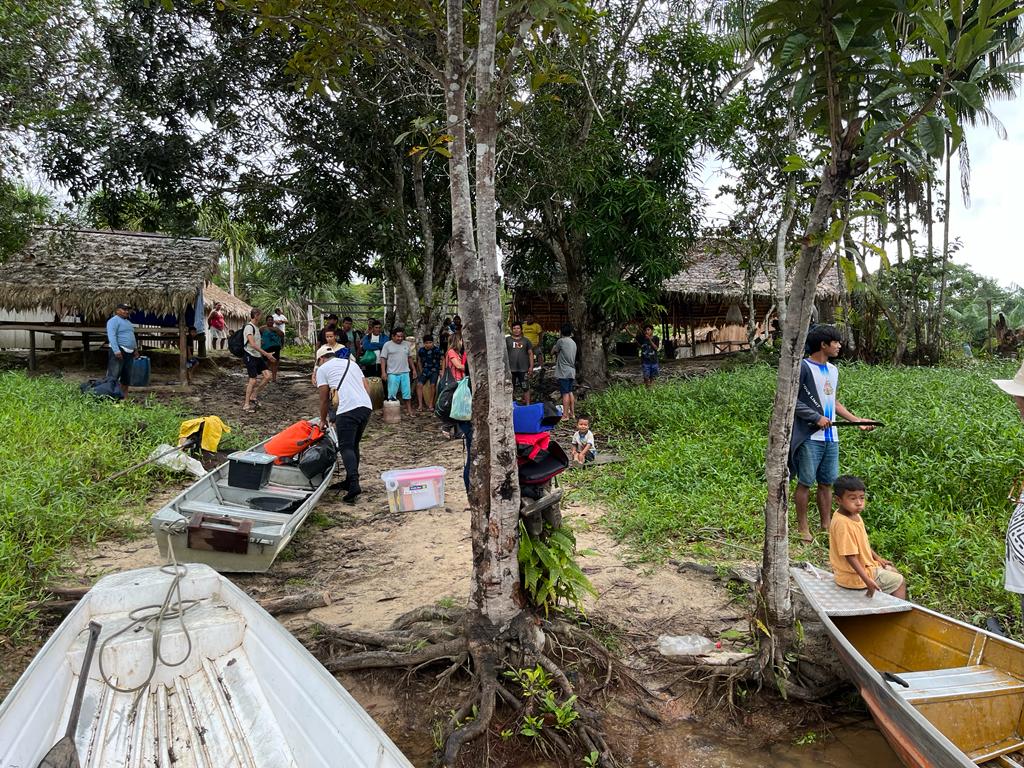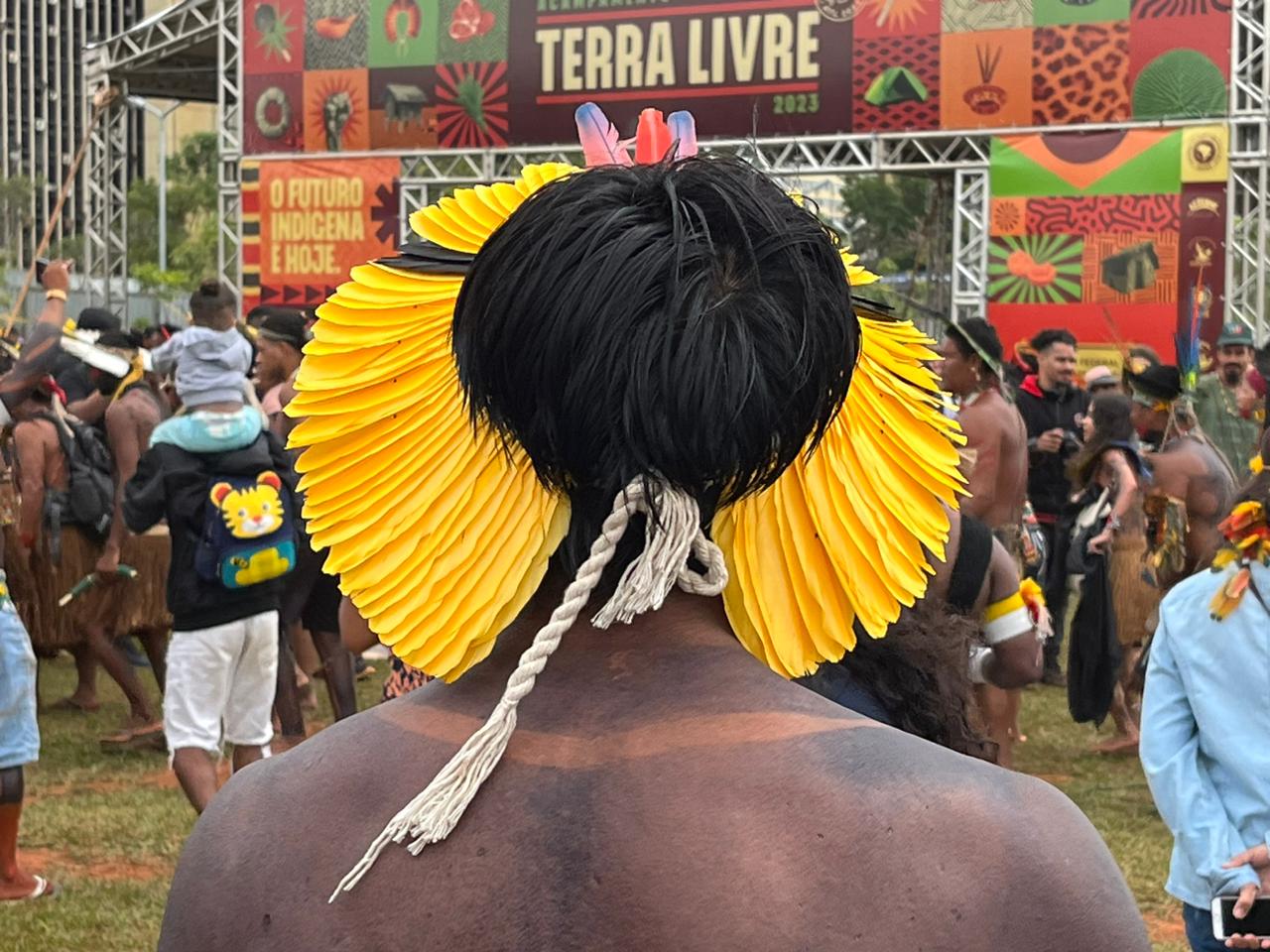2023-05-22
The new initiative, Tenure Facility’s first in Brazil, will advance both tenure security in the Amazon as well as the capacity of indigenous communities there to effectively manage and channel large-scale funding.
With billions of dollars promised and little of it actually reaching communities, funding remains a perennial challenge for indigenous movements.
That rings true for countries like Brazil, home to an estimated more than a million Indigenous Peoples, many of whom reside in and care for remote stretches of the Amazon Basin.
But there, like in other parts of the world, an indigenous coalition has launched a new way to directly support community efforts to secure territorial rights that can help protect and sustain the vital rainforests they encompass.

Aurélio Vianna / Tenure Facility
Established in 2020, Podáali is Brazil’s first-ever community fund to be created, designed and managed by Indigenous Peoples. Synonymous with celebration, reciprocity and promoting sustainability in the Baniwa language, Podáali is a groundbreaking initiative that came about after more than two decades of discussions, led by the Coordination of Indigenous Organizations of the Brazilian Amazon (COIAB).
The fund is currently led by four indigenous women and, together with COIAB, is also one of the newest strategic partners supported by Tenure Facility as it works to guarantee indigenous territorial rights.
“It’s a possibility, an opportunity for Indigenous Peoples, created by Indigenous Peoples that can help institutions support and rally behind indigenous issues,” said Valéria Paye, Podáali’s executive director.
The 3-year project, supported by Tenure Facility, will start in May to help strengthen and support the nascent fund with an injection of more than $3 million. That funding will also enable COIAB to help advance tenure security on Indigenous Peoples’ lands in the Brazilian Amazon.
"It’s a possibility, an opportunity for Indigenous Peoples, created by Indigenous Peoples that can help institutions support and rally behind indigenous issues"
COIAB, one of the largest networks of the indigenous organisations in Brazil, will serve as the project’s main implementor, carrying out advocacy and campaigns and working with the Ministry of Indigenous Peoples, the governmental National Foundation for Indigenous Peoples, and the Federal Attorney Office to advance the legal recognition and demarcation of indigenous lands.
“The project will help us to guarantee rights, monitor, work on management and organisational plans, and strengthen the local associations to which these peoples belong,” said Toya Manchineri, an indigenous leader and Executive Coordinator of COIAB.
Podáali will serve as the project’s main partner and proponent, a role that will help it grow and develop as an institution and eventually build a new and more inclusive ecosystem of climate financing mechanisms that would directly assist and empower indigenous communities.

Aurélio Vianna / Tenure Facility
These kinds of funds can also help address the historical and ongoing marginalisation of Indigenous Peoples by being more responsive to communities, functioning as important tools for guaranteeing their territorial rights, and promoting more sustainable and equitable approaches for managing natural resources.
“This is quite new in the world,” said Aurelio Vianna, Tenure Facility’s Brazil-based senior program officer who collaborates on this project with Podáali and COIAB. “And Tenure Facility’s grant is Podáali’s largest to date. It’s going to help put this fund on another level.”
Brazil’s new political context is also giving the project partners and communities an incredible opportunity to restart work on officially demarcating their lands, curbing deforestation and reviving protections of indigenous land rights in the Amazon.
In late April, the Brazilian Indigenous Peoples’ movement convened by the thousands in Brasilia, the country’s capital , stating that without land demarcation “there is no democracy.”
President Luiz Inácio Lula da Silva attended the meeting and announced that the government “homologated” (or titled) six Indigenous Peoples lands, resuming the demarcation process for indigenous territories after more than 4 years.
Articles